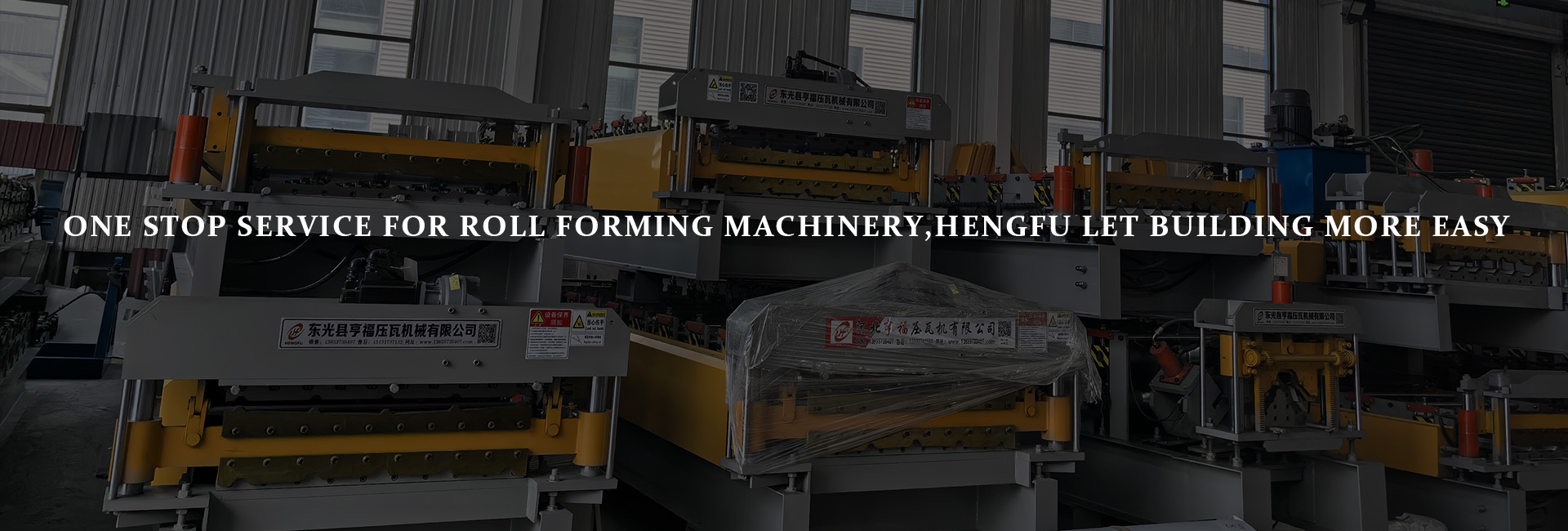I. Introduction: Industry Value of Metal Roof Forming Machines
1.Market Growth and Efficiency Demands
The application of metal roofing in the construction industry continues to expand, driven by the dual needs of shorter project cycles and upgraded quality. This trend propels the iteration of construction equipment.
2.Core Differences Between Traditional and New Equipment
Traditional manual or rudimentary equipment faces bottlenecks such as long construction periods, low precision, and high costs. In contrast, metal roof forming machines achieve cost reduction and efficiency enhancement through automation, high precision, and multifunctionality.
3.Focus of This Article: Analysis of Efficiency Improvement Paths
This article delves into the optimization mechanisms of forming machines in dimensions such as construction duration, material utilization, and operation, revealing the value of technological innovation.
II. Basic Understanding of Metal Roof Forming Machines
1.Equipment Definition and Functions
These machines process metal sheets into corrugated panels, interlocking panels, and other roofing components through rolling, transmission, and intelligent control.
2.Core Components Analysis
Rolling System: Multiple sets of rollers progressively bend the material to ensure forming precision.
Transmission Device: Motors drive uniform material feeding.
Control System: Integrates parameter adjustment and fault diagnosis functions.
3.Machine Types and Application Scenarios
Classified by structure as single-layer or double-layer forming machines, and by automation level as semi-automatic or fully automatic, to suit different project scales.
4.Key Technical Parameters
Forming speed, material compatibility range (material type/thickness), and dimensional error precision determine the equipment's production capacity.
III. Core Efficiency Improvement Mechanisms Comparison
1.Principle of Construction Duration Reduction
The forming machine's fully automated process (feeding→forming→discharging) reduces human intervention, significantly shortening the cycle compared to traditional segmented operations.
2.Material Utilization Enhancement
Precision rolling and numerical control ensure accurate bending parameters, reducing material waste due to rework.
3.Mold Change Cost Optimization
Modular roller design supports rapid switching between different sheet specifications, reducing mold change frequency and downtime losses.
4.Operation Complexity Comparison
Traditional equipment relies on manual experience, while forming machines use touchscreens for preset parameters, lowering the operational threshold and risk of errors.
IV. Selection and Usage Recommendations
1.Machine Type Selection Logic
Semi-automatic models are suitable for small projects, while fully automatic equipment is ideal for large-scale engineering, matching sheet types and daily production demands.
2.Brand and After-Sales Considerations
Prioritize brands with mature technology and comprehensive service networks to ensure equipment debugging and maintenance responsiveness.
3.Daily Maintenance Tips
Regularly clean rollers, lubricate transmission parts, and monitor equipment operation status to prevent precision degradation.
V. Industry Trends and Future Outlook
1.Intelligent Upgrade Directions
AI algorithms optimize parameter adaptation, and remote monitoring enables real-time equipment status alerts.
2.Green Technology Innovations
Low-energy designs, compatibility with recycled materials, and waste recovery functions drive sustainable industry development.
3.Market Competition Trends
High-precision, multifunctional models accelerate iteration, with differentiated technologies becoming core competitive advantages for enterprises.
VI. Conclusion: Equipment Iteration Drives Industry Transformation
Metal roof forming machines reshape construction standards through systematic efficiency improvements. From construction duration and cost to operational experience, the technological advantages of new equipment are significant. For those exploring equipment selection plans, it is recommended to conduct a comprehensive assessment based on project requirements and technological trends.







